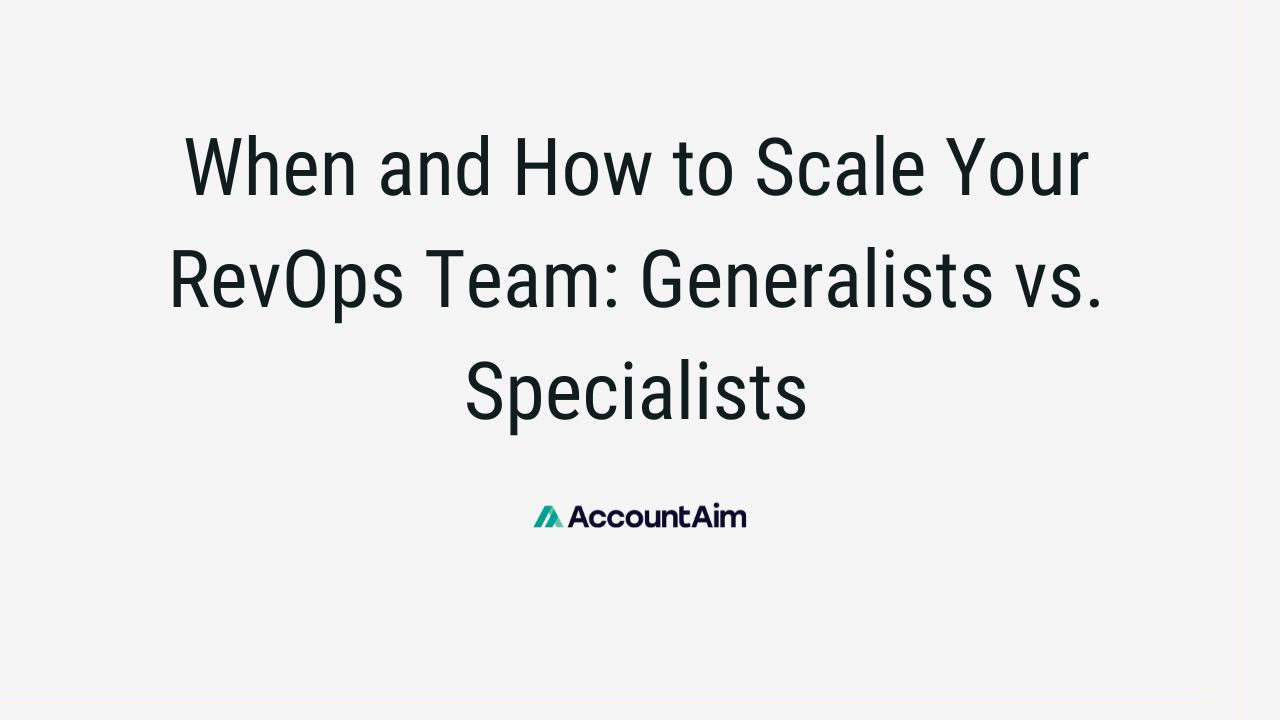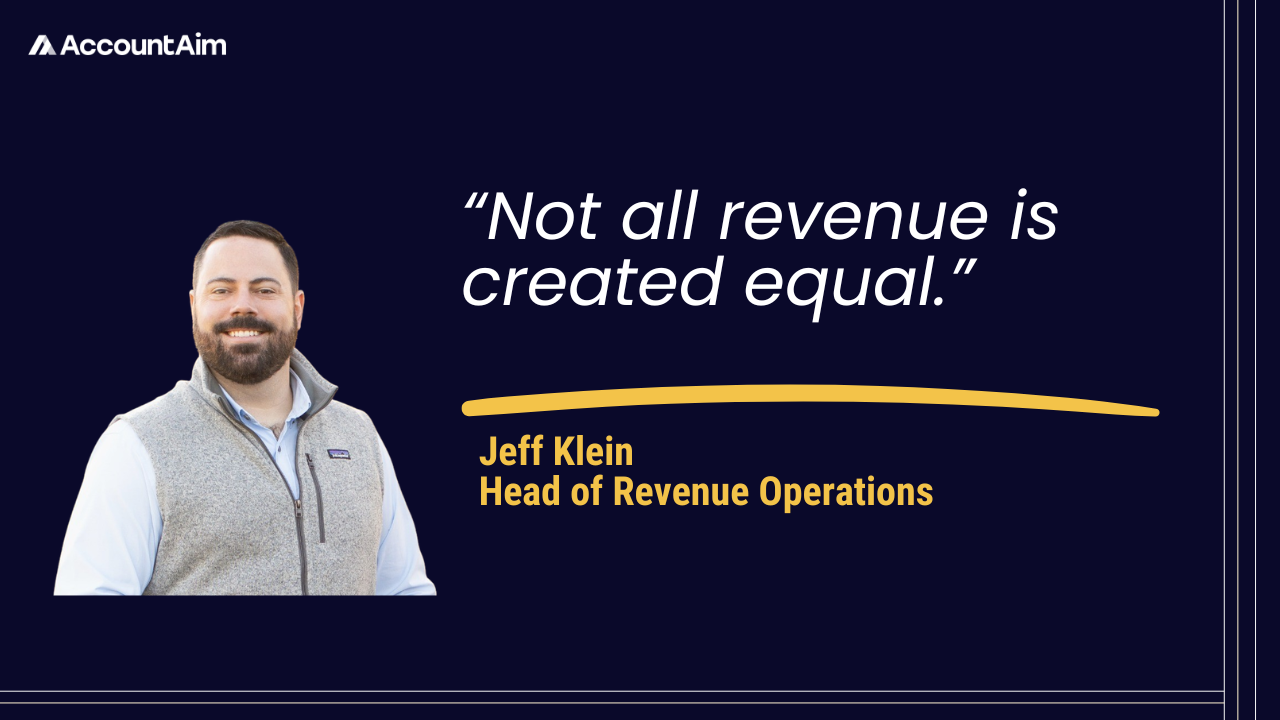Scaling Revenue Operations involves more than increasing headcount. It requires carefully sequencing talent to match the business’s evolving needs. As companies move beyond the early RevOps phase, leaders must decide what type of hire will drive the most value: a versatile generalist or a role-specific expert.
This is a strategic decision that influences how effectively your company can operate and grow. Being clear on the timing and implications of each hire is key to addressing early RevOps hiring challenges and following sound RevOps practices.
Generalists vs. specialists: what you need and when
Generalists bring range. They’re adaptive, cost-effective, and capable of flexing across sales, marketing, and CS. In early-stage environments where priorities shift weekly, generalists thrive because they don’t require fixed lanes to deliver value. They’re well-suited to ambiguous situations, often functioning as systems owners, ad hoc analysts, and internal consultants rolled into one. For RevOps leaders building from scratch, a skilled generalist accelerates momentum across the board without overcommitting headcount.
Specialists bring depth. When the business matures and your GTM motion becomes more complex, specialists enable repeatability, scale, and precision. A CRM admin can deeply optimize workflows and governance. A revenue analyst can deliver reliable insights with clean logic. A marketing ops lead can systematize campaign operations across tools and teams. Specialists are also easier to measure because their scope is clearly defined, and outcomes are easier to track and improve. They’re most impactful when core needs are known and the goal is to execute at scale.
If you’re wondering how to scale RevOps without a data team, generalists will help you bridge the gap until the infrastructure and scale justify a specialist.
Early-stage RevOps: one operator, many hats
Most RevOps leaders begin alone. In the earliest stages, flexibility is everything. The business needs someone who can set up dashboards in the morning, untangle Salesforce logic in the afternoon, and weigh in on comp structure before the day ends.
At this stage, generalists thrive. They unlock value across a wide range of functions. What matters most is speed, adaptability, and a strong bias for execution. Precision is a luxury. Momentum is not.
Knowing when to specialize
Specialist hires become necessary when your GTM motion outgrows the capacity of a single operator. Look for signals like:
- Growing backlog of reporting and system requests
- CRM debt that slows down campaigns and enablement
- Inconsistent handoffs between teams
- Manual forecasting that no one trusts
- Requests for insights you can’t reliably provide
These signals usually emerge post-Series A, especially in companies expanding geographies, product lines, or functional coverage. This is when strategic RevOps leadership transitions from tactical execution to operational orchestration.
Building your hiring roadmap
There’s no one-size-fits-all blueprint, but there is a sequence that often works:
- Stage 1 (0–1): generalist who can run point across systems, strategy, and reporting
- Stage 2 (1–3): addition of a more junior generalist to support first hire and/or a specialist in marketing ops, which is a common early gap
- Stage 3 (3–6): add depth in analytics, CRM admin, or enablement
- Stage 4 (6+): move to a functional pod model with dedicated ops for sales, marketing, and CS
The right hire depends on the current bottlenecks within your team and the operational needs of your business stage.
Build for where you’re going
The RevOps team you design should reflect the business you’re becoming, not just the one you are today. That means starting with generalists who can unlock value quickly, then layering in specialists as systems grow more complex.
Keep the team lean, structured, and aligned to clear business outcomes. High-performing RevOps organizations focus on advancing growth through operational clarity and scalable practices.
Go further
For additional thoughts on structuring Revenue Operations as your company scales, check out this HubSpot community to hear from other RevOps leaders.
Alex Miller also talks about importance of Generalists and Specialists in his Boardroom RevOps conversation with AccountAim’s co-founder James Geyer.



